Prayers for the Deceased
Under the guidance of Phakchok Rinpoche, Samye Institute has organized a system to request prayers and practices for the deceased. On this page you can request Bardo prayers and specific pujas for the passing of a family member, loved one, or friend after the person has died.
We extend our deepest sympathy during this challenging transitional period and keep you and your loved ones in our thoughts and prayers.
Samye offers concise, standard, and elaborate puja options for the 49-day (7-week) period. They differ in the number of monks involved, the list of prayers and practices (or pujas), and the amount of tsok and butter lamps offered. Below you can see the schedule for the three options, and then further below you can read a short description of each type of puja. In order to submit your request, please click on one of the three options, and you will be taken to a form where you can share the name of the deceased, a photo, and then make your offering.
During the 49-day period, the end of every week is very important. On these days, one should accumulate butter lamp offerings and dedicate the merit to benefit the loved one for their journey through the bardos, for their purification of negative karma, and for helping them accumulate merit toward a good rebirth. Many people have also requested the option of making smaller offerings at the time of decease. For this, we recommend the offering of butter lamps at Asura Cave, with a dedication made for the deceased.
If you have any questions about requesting Bardo Prayers, please contact our prayer coordinator, Lana O’Flaherty, using this form.
Bardo Prayer Options
Concise Bardo Prayers
$500
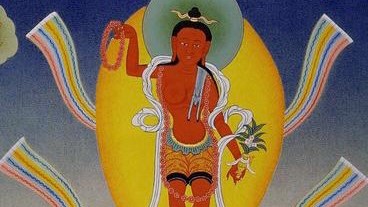
For the concise option, at the end of every week, for seven weeks, the following will be done for the deceased by a group of four monks:
- At the end of the 1st week – Korwa Dongtruk and 21 butter lamps offering
- End of the 2nd week – Korwa Dongtruk and 21 butter lamps offering
- End of the 3rd week – Korwa Dongtruk and 21 butter lamps offering
- End of the 4th week – Amitabha puja and 21 butter lamps offering
- ‘End of the 5th week – Amitabha puja and 21 butter lamps offering
- End of the 6th week – Amitabha puja and 21 butter lamps offering
- The 49th day, the end of the 7th week – Amitabha puja and 21 butter lamps offering
For the concise option, at the end of every week, for seven weeks, the following will be done for the deceased by a group of four monks:
- At the end of the 1st week – Korwa Dongtruk and 21 butter lamps offering
- End of the 2nd week – Korwa Dongtruk and 21 butter lamps offering
- End of the 3rd week – Korwa Dongtruk and 21 butter lamps offering
- End of the 4th week – Amitabha puja and 21 butter lamps offering
- ‘End of the 5th week – Amitabha puja and 21 butter lamps offering
- End of the 6th week – Amitabha puja and 21 butter lamps offering
- The 49th day, the end of the 7th week – Amitabha puja and 21 butter lamps offering
Standard Bardo Prayers
$1,500
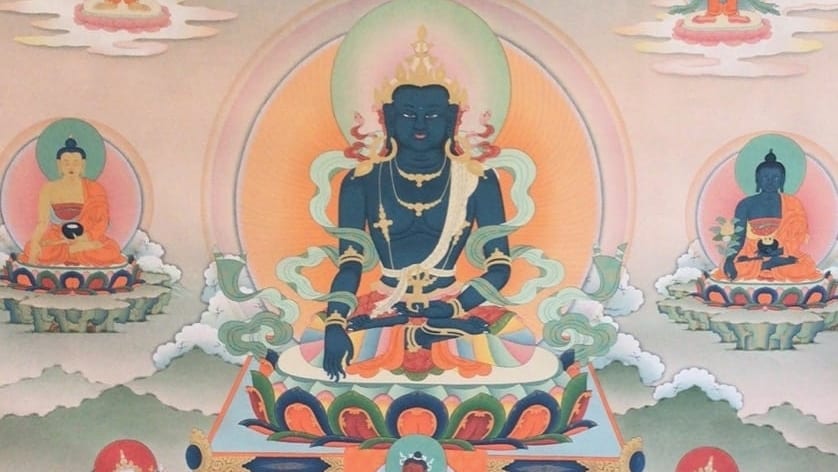
For the standard option, at the end of every week, for seven weeks, the following will be done for the deceased by a gathering of monks:
- At the end of the 1st week – Korwa Dongtruk and 100 butter lamps offering
- End of the 2nd week – Korwa Dongtruk and 100 butter lamps offering
- End of the 3rd week – Amitabha puja and 100 butter lamps offering
- End of the 4th week – Amitabha puja and 100 butter lamps offering
- End of the 5th week – Kunzang Tuktik and 100 butter lamps offering
- End of the 6th week – Sangtik Dorsem and 100 butter lamps offering
- On the 49th day, at the end of the 7th week – Ngensong Dongtruk and 100 butter lamps offering
For the standard option, at the end of every week, for seven weeks, the following will be done for the deceased by a gathering of monks:
- At the end of the 1st week – Korwa Dongtruk and 100 butter lamps offering
- End of the 2nd week – Korwa Dongtruk and 100 butter lamps offering
- End of the 3rd week – Amitabha puja and 100 butter lamps offering
- End of the 4th week – Amitabha puja and 100 butter lamps offering
- End of the 5th week – Kunzang Tuktik and 100 butter lamps offering
- End of the 6th week – Sangtik Dorsem and 100 butter lamps offering
- On the 49th day, at the end of the 7th week – Ngensong Dongtruk and 100 butter lamps offering
Elaborate Bardo Prayers
$3,000
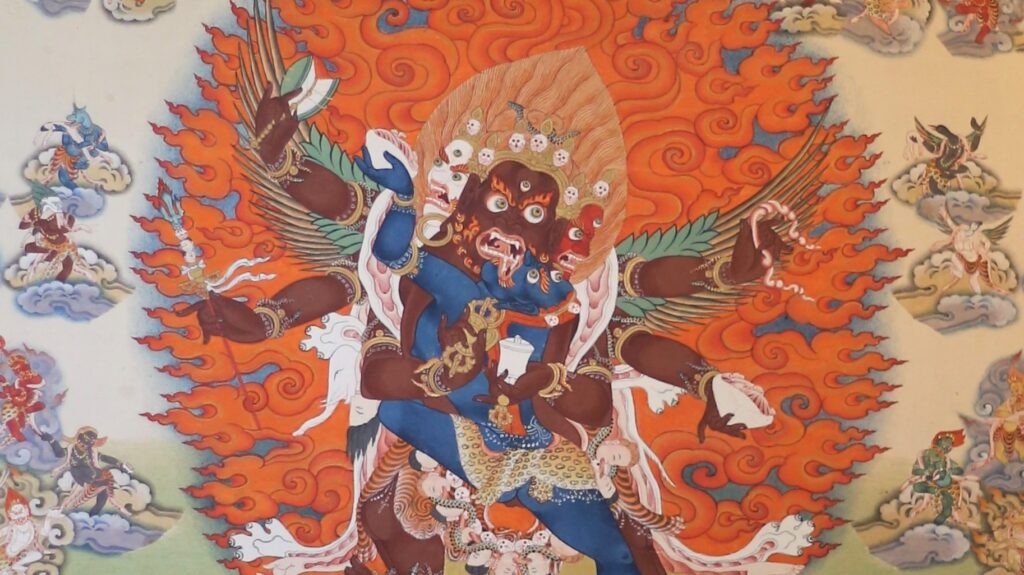
For the elaborate option, every day, there will be a Sur offering (or burnt offering to satisfy spirits and bardo beings) and a reading of A Liberation Upon Hearing done for the deceased. And, at the end of every week, for seven weeks, the following will be done for the deceased by a gathering of monks:
- At the end of the 1st week – Ngensong Dongtruk and 100 butter lamps offering
- End of the 2nd week – Korwa Dongtruk and 100 butter lamps offering
- End of the 3rd week – Amitabha puja and 100 butter lamps offering
- End of the 4th week – Kunzang Tuktik and 100 butter lamps offering
- End of the 5th week – Sangtik Dorsem and 100 butter lamps offering
- End of the 6th week – Ngensong Dongtruk and 100 butter lamps offering
- The 49th day, the end of the 7th week – Kunzang Tuktik and 100 butter lamps offering
For the elaborate option, every day, there will be a Sur offering (or burnt offering to satisfy spirits and bardo beings) and a reading of A Liberation Upon Hearing done for the deceased. And, at the end of every week, for seven weeks, the following will be done for the deceased by a gathering of monks:
- At the end of the 1st week – Ngensong Dongtruk and 100 butter lamps offering
- End of the 2nd week – Korwa Dongtruk and 100 butter lamps offering
- End of the 3rd week – Amitabha puja and 100 butter lamps offering
- End of the 4th week – Kunzang Tuktik and 100 butter lamps offering
- End of the 5th week – Sangtik Dorsem and 100 butter lamps offering
- End of the 6th week – Ngensong Dongtruk and 100 butter lamps offering
- The 49th day, the end of the 7th week – Kunzang Tuktik and 100 butter lamps offering
One-Time Bardo Prayers
$100
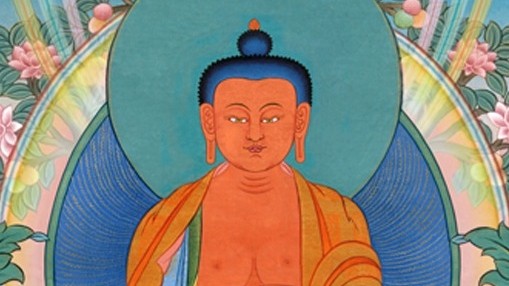
Samye also offers a one-time prayer request option. You may request an Amitabha puja and 100 butter lamps offering to be performed by a group of monks for the deceased loved one. This would ideally be done during the first week after the person’s passing.
Samye also offers a one-time prayer request option. You may request an Amitabha puja and 100 butter lamps offering to be performed by a group of monks for the deceased loved one. This would ideally be done during the first week after the person’s passing.
Light Offerings
Optional
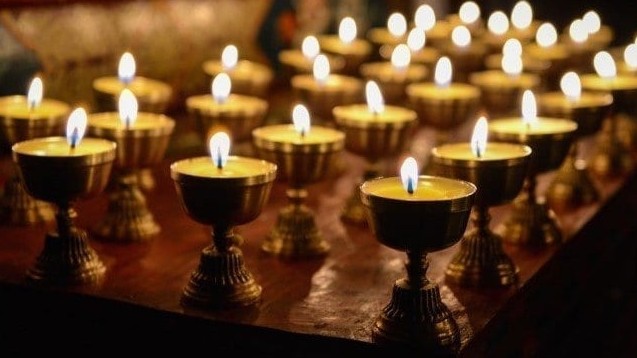
Lighting butter lamps is a meaningful practice to benefit and guide the deceased.
Phakchok Rinpoche has directed the monks and nuns at the Asura Cave to light 1,000 butter lamps every day for the benefit of all beings.
Anyone can participate by offering butter lamps on behalf of those who have passed away and making aspirations for their good rebirth and recognition of mind nature. This is an auspicious way to benefit an acquaintance, sangha member, relative, or friend.
You can find concise and elaborate versions of lamp aspiration prayers featured
Lighting butter lamps is a meaningful practice to benefit and guide the deceased.
Phakchok Rinpoche has directed the monks and nuns at the Asura Cave to light 1,000 butter lamps every day for the benefit of all beings.
Anyone can participate by offering butter lamps on behalf of those who have passed away and making aspirations for their good rebirth and recognition of mind nature. This is an auspicious way to benefit an acquaintance, sangha member, relative, or friend.
You can find concise and elaborate versions of lamp aspiration prayers featured
Special Request Prayers
Upon Request
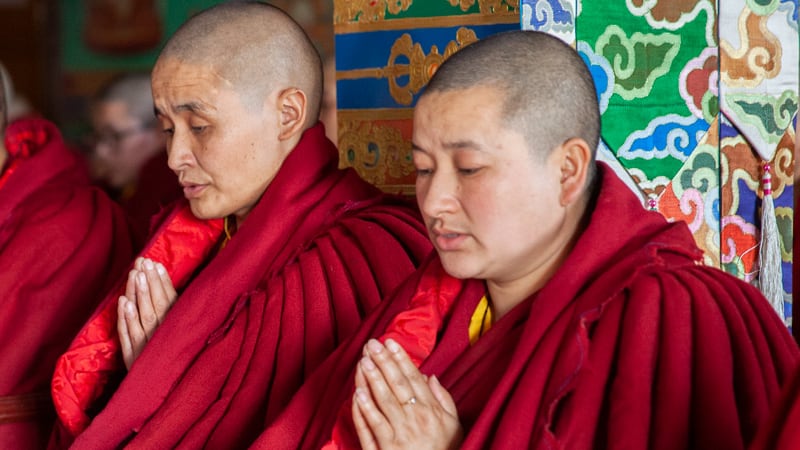
Please don’t hesitate to contact us, if you would like to request a specific puja, that isn’t listed here. We will try our best to accommodate your wishes.
Please don’t hesitate to contact us, if you would like to request a specific puja, that isn’t listed here. We will try our best to accommodate your wishes.
Please contact our prayer coordinater Lana O’Flaherty using this link.
Bardo Prayers at Do-Ngak Ling Monastery (Video)
About the Pujas
Korwa Dongtruk
Korwa Dongtruk (Dredger of Samsara) is a manifestation of Avalokiteshvara, or Quan Yin Pusa in Chinese. This is the main heart practice of Guru Rinpoche. This puja is for emptying the depths of samsara and for purification and accumulation, and for guiding the bardo beings to have a smooth transition.
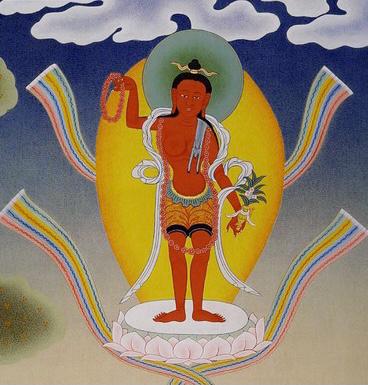
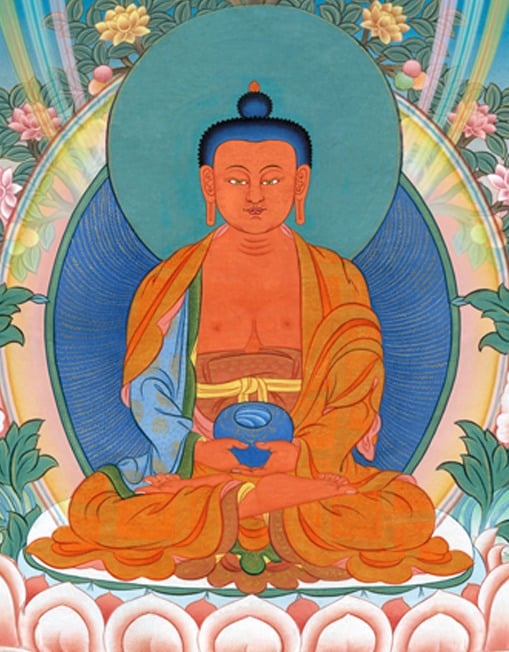
Amitabha Buddha
Amitabha Buddha is very well known among Mahayana and Vajrayana practitioners as the Buddha who made the aspiration to manifest the pure realm of Sukhavati, the pure land of great bliss, for beings to take rebirth. Doing this puja on behalf of the deceased purifies negative karmas, accumulates merit, and connects them with Amitabha to help the deceased to be reborn in Amitabha’s pure land.
Kunzang Tuktik
Kunzang Tuktik is the heart essence of Samantabhadra, and belongs to the Dzogchen teachings and includes offerings to the 100 deities to benefit and liberate the bardo beings.
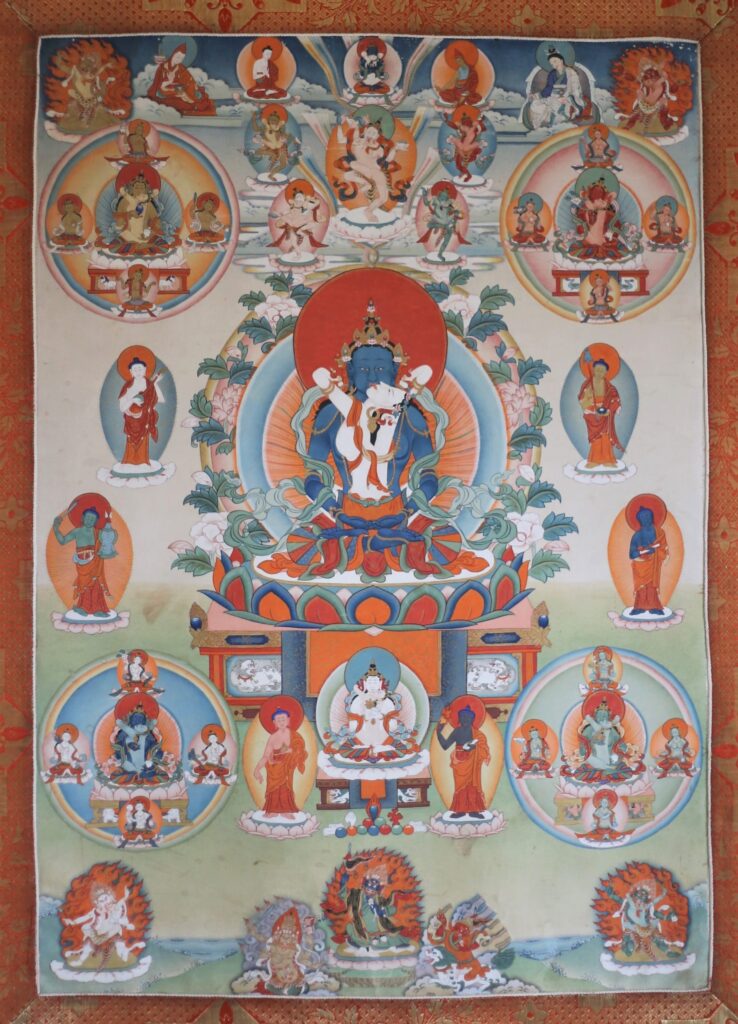
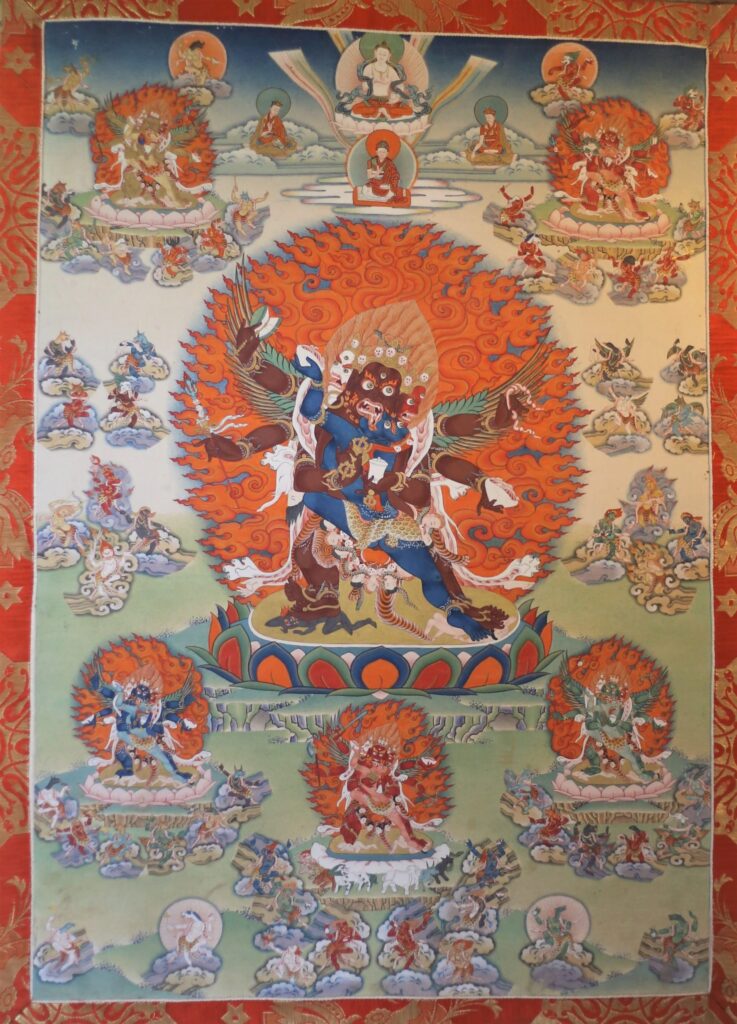
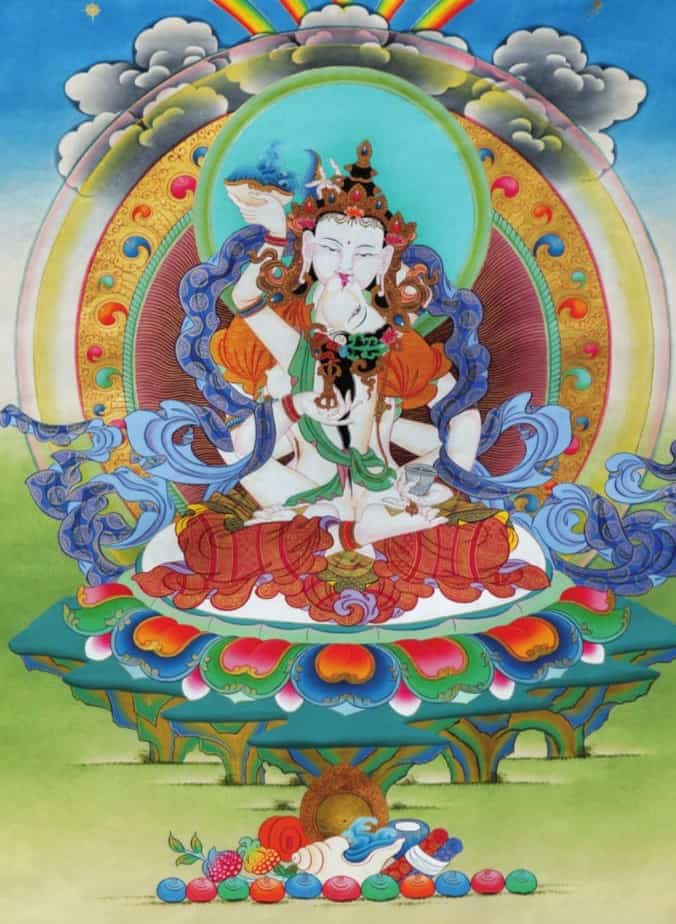
Sangtik Dorsem
Sangtik Dorsem is a Vajrasattva practice that includes all the Buddhas of the five families. Vajrasattva is a well-known Buddha of purification of all the deep karmic seeds, obscurations, and negative emotions.
Ngensong Dongtruk
Ngensong Dongtruk (Dredger of the Lower Realms’ Depths) is taught by Mahaguru Padmasambhava within the cycle of Tukdrup Barché Künsel. It includes many of the great buddhas and bodhisattvas in one mandala such as Amitabha Buddha, Shakyamuni Buddha, Medicine Buddha, Buddha Vairocana, and Akshobhya Buddha. All five of these great Buddhas together with four great bodhisattvas are invited into one mandala to do practices on behalf of the deceased. Purification practices are done, and elaborate offerings are made to help the deceased to accumulate merit to be reborn in the pure land.
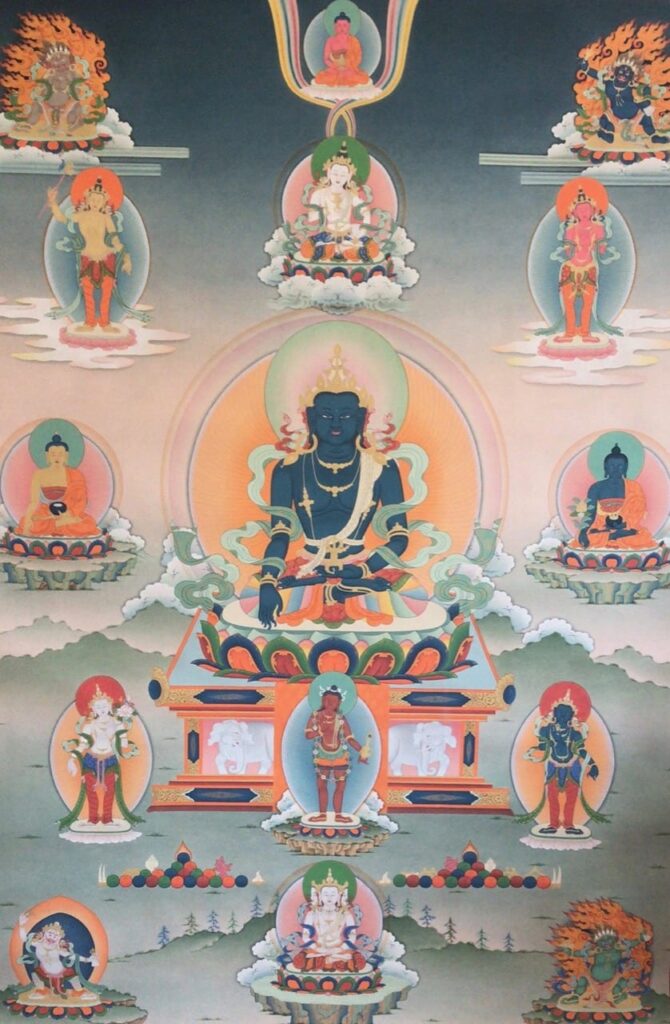
Resources
Noble Living, Noble Caring and Noble Dying describes the outlook we can bring to our human experience. This resource center is the result of many conversations with Phakchok Rinpoche, Tulku Migmar, and experts in the caring profession. We invite you to explore how our Buddhist practice informs our living, caring, and dying so that they are noble: filled with dignity and grace.
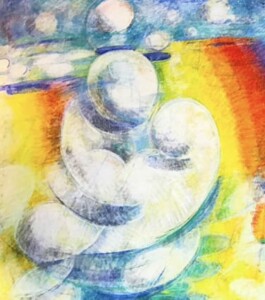
Noble Living, Noble Caring, Noble Dying: Supplementary Resources
Please find a selection of supplementary resources prepared by our Noble Living, Noble Caring, Noble Dying team.
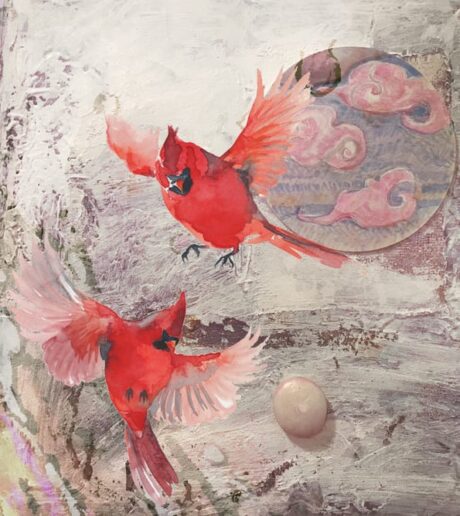
Conversation with Phakchok Rinpoche on Grief and Guilt
Phakchok Rinpoche discusses how we can best help those who are going through the grieving process.
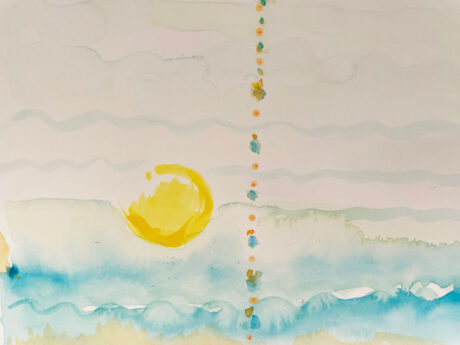
Conversation with Phakchok Rinpoche on Prayer and Phowa
Phakchok Rinpoche discusses the benefits of prayer and phowa with Samye Institute’s Noble Living, Noble Caring, Noble Dyinf team.

Conversation: What’s Happening at Death?
Here, Tulku Migmar discusses the signs of death—the actual physical dissolution of the body as it is explained in the Tibetan tradition.

